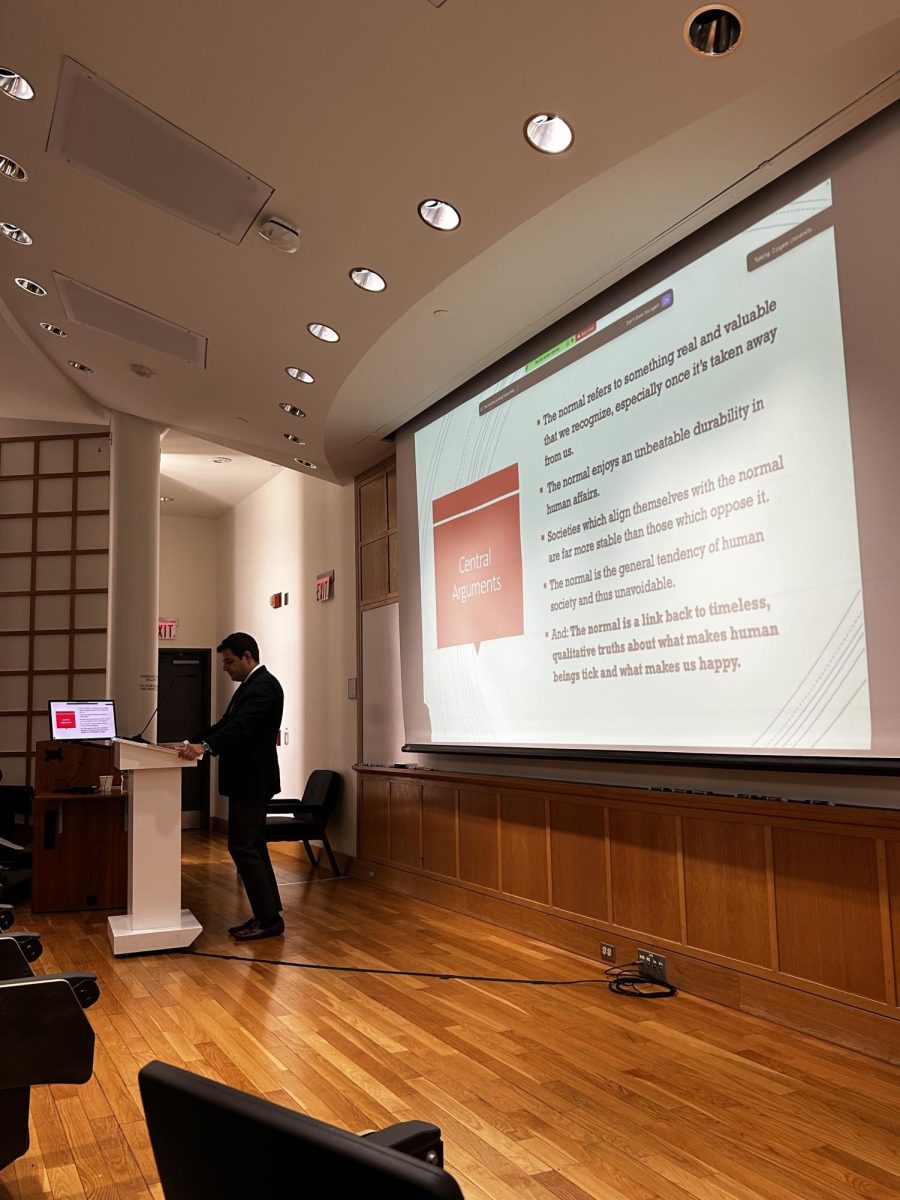On Thursday, Nov. 14, Colgate University’s department of philosophy hosted Lewis Powell, an associate professor of philosophy at the University of Buffalo, to present his research on John Locke’s theory of language. Powell’s research focuses on early modern philosophy, with particular insights into how early modern philosophers — specifically Locke — conceived language and the mind.
In his lecture, Powell explained how Jorge Gracia, distinguished professor emeritus of philosophy at the University at Buffalo, defined differences between literary and philosophical texts, which parallel many of Locke’s views on language. Powell described Gracia’s view of the functional differences of words in literary and philosophical texts, highlighting that words are used mainly to convey ideas in philosophical works, whereas in literary works, words spark the imagination and elicit feelings and ideas. Gracia’s view centers around whether or not the text, a string of characters on the page, is an essential component of distinguishing between literary and philosophical works.
“Words are an important part of a piece of literature but not so much in philosophy. In philosophy, we only really care about the meaning and the words are sort of a means to an end,” Powell said. “In literature, it matters what words you use to tell the story. In philosophical work, you can have the same work without the same text; you can convey the same idea using different words.”
Powell’s interpretation of Locke’s views on language concluded that language is rooted in the psychology of the relationship between words and the mind. Additionally, Powell discussed the Lockean view that the purpose of language is to communicate what is hidden in one’s mind for the advancement of knowledge. Therefore, words serve as indicators rather than descriptors and stand as marks and signs for ideas of the individual mind. Powell explained that in Locke’s view, any use of language that is not purely literal or veritable is an abuse of language. The use of figurative language to share knowledge misleads and deceives others into falsely believing they understand the meaning of the work.
“Locke says anytime you are using figurative or metaphorical language you are sneakily trying to animate people’s emotions. Not all metaphors are inherently emotional,” Powell said. “This expressivist model Locke has is not focused just on the cognitive states. You can express pain, you can express desires, you can express hopes, wishes and dreams, so why should this overarching system be focused entirely on beliefs when you have all these other things going on in your mind that you might also want to express and share?”
Powell expressed disagreement with Locke’s literalist view of figurative language, claiming that metaphors and rhetoric can further lend knowledge to and enhance learning. Powell argued that Locke’s view on the deceptiveness of figurative language fails to consider that not all metaphors appeal to emotion and therefore can be used to share objective knowledge. Additionally, appeals to emotion do not necessarily trick others into persuasion; rather, they can better communicate knowledge or ideas between humans through emotional connections.
First-year Avery Johnston felt compelled by Powell’s explanation of literalism in writing and how much of an impact language has on communication, interpretation and the mind.
“He was very knowledgeable on the topic and explained complex philosophical theories in an understandable and interesting way,” Johnston said. “I am taking philosophy, so Powell’s interpretation will be in the back of my mind when writing philosophy papers; it might even change the way I write papers.”
George Washington University student Alexa Brown, who was visiting Colgate and attended the lecture, thought Powell’s discussion offered her a new perspective on the role of language in her life.
“I never thought of language or writing in that way before,” Brown said.“It definitely made me rethink everyday communications and better appreciate the complexity of language, even in simple conversations. I also think it gave me a greater appreciation for language, especially figurative language. Words have no real meaning; it is just how we interpret and use them.”














